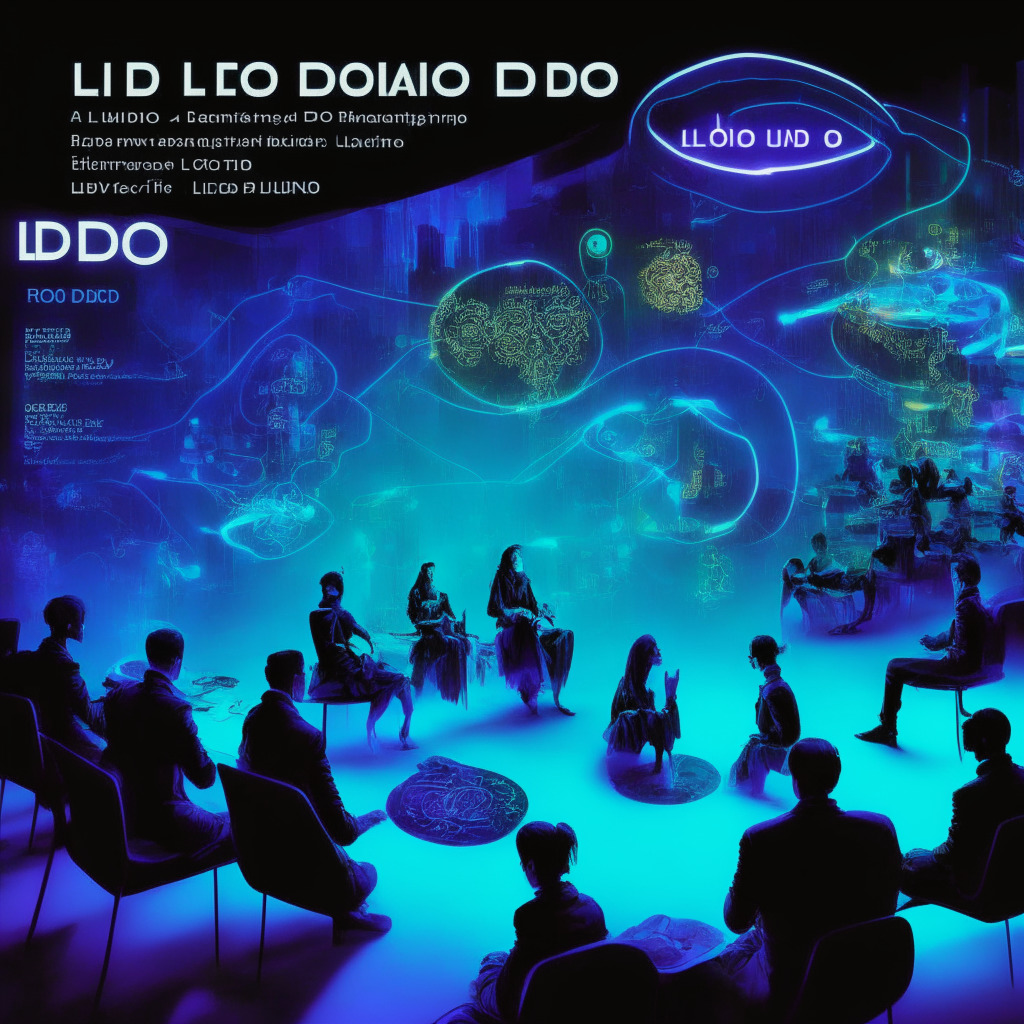The Lido community is buzzing with talk of an interesting proposal submitted by a member named lidomaxi. The proposal aims at increasing the utility of Lido’s native governance token, LDO, by introducing a staking mechanism and a buyback program. Additionally, the proposal includes an insurance fund for the Lido DAO and a revenue-sharing parameter that could potentially redirect 20-50% of future Lido DAO revenue from the protocol treasury to stakers of LDO.
This development is proposed to boost the value of LDO, which saw a significant increase in its price. According to data analytics firms Nansen and Arkham Intelligence, LDO’s value jumped nearly 15% within a day before settling at $2.38, per CoinGecko. This increase in value came after Jump Trading moved nearly 3 million LDO tokens worth $7.5 million in two transactions to a new address.
Various members of the Lido community have already expressed their support for the proposal. One such supporter is Steakhouse, a financial advisory firm for several decentralized autonomous organizations (DAOs), stating, “There’s definitely a good case to be made for something like this.” Even critics of LDO are changing their perspectives. Hal Press, founder of hedge fund North Rock Digital, who had previously been critical of LDO, took to Twitter to say that if the proposal is adopted, it “would go a long way toward fixing that issue.”
However, even with such promising initiatives, there is a level of skepticism to consider. Introducing staking and buyback programs could bring a level of complexity to the governance and tokenomics of the Lido ecosystem. Besides, the potential redirection of revenue-sharing in favor of LDO stakers could have implications on the general token holder community, as it would mean that rewards for the majority of token holders would be significantly reduced in order to accommodate the new structure.
In conclusion, the proposal to introduce staking and buyback programs, along with an insurance fund and revenue-sharing alteration, could potentially revamp Lido’s native governance token LDO. While there is backing from some members and critics alike, it is essential to be aware of potential downfalls and concerns generated by such initiatives. The introduction of more complexity to the ecosystem and the potential impact on other token holders should be taken into account by the community when evaluating this proposal. The future developments surrounding this will certainly be a topic of interest for both supporters and skeptics of LDO.
Source: Coindesk




